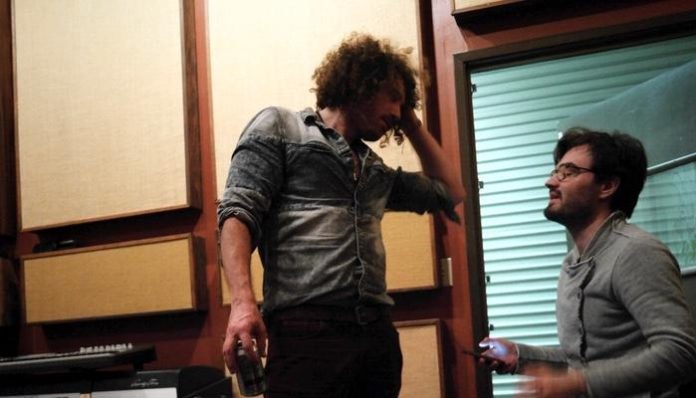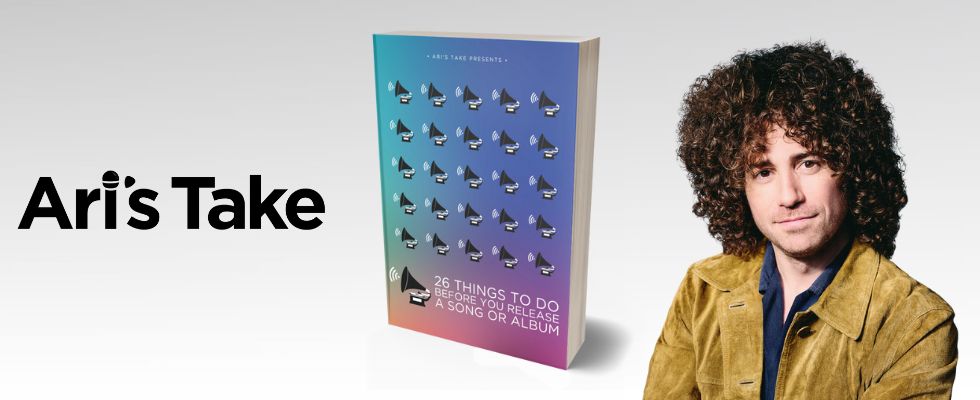I just left the studio last week where we finished the final tracking for my new funk project’s debut record.
For the past 8 months or so I have been working on this record on and off. My producer, co-front person and I tracked (mixed and mastered) one song to figure out if we were a compatible team and how exactly we were going to go about the rest of the project.
But before that, I had my attorney draw up a producer agreement (contract) just to get everything worked out up front, on paper. And by “my attorney” I mean a referral to a music attorney from a lawyer friend of mine. I have gotten this far with my music career without having my own attorney. Sure I’ve enlisted attorney friends here and there for various services (for which I bartered). Lawyers are EXPENSIVE! The attorney that vetted my book forced me to include all these “but to be safe, consult an attorney” phrases so often it became my inadvertent, unwelcomed catchphrase (don’t even get me started on the “Author’s Note” or “Words of Caution…” she shoved down my throat).
ANYWAY, I enlisted this new attorney to draft up a producer agreement based on an email I sent my producer laying out all the terms to which he agreed.
This attorney was charging me (the “bro rate”) of $250 an hour. What a bro. Yeah, attorneys in LA are EXPENSIVE. Anyway, I sent him the email and I asked him to draft something up that was “completely fair and reasonable.” I also told him “no funny business.” Meaning, don’t include anything in there that is more favorable to me and less favorable for my producer. Keep it completely neutral. For one, I didn’t want an expensive battle. And two, I wanted to start things off on the right foot with my producer. I wanted his attorney to take a look at the contract and say “Yeah this is completely fair. You can sign this.”
What happened, though, was as far from that as you can get.
We sent him the contract and his attorney promptly shot back a laundry list of extreme demands. Not reasonable ones. Extreme. But he did this intentionally because that’s how the game works.
See, I didn’t realize we were gonna play games. I just wanted this to go smoothly. But my producer’s attorney knew the laws of negotiation. And, clearly, we did not.
To make a long story short, what I was thinking would cost me around $500 in legal fees ended up costing me $1,600 when all was said and done. I was copied on all the emails and it eventually turned into a dick slinging contest. My producer’s attorney seemed to want to prove to his client that he could fight hard! Even though there shouldn’t have been anything to fight about in the first place. And he wanted to show his client how smart he was by making so many demands – even though his client and I had already mutually agreed on everything. I had to text and call my producer a couple times and ask him to tell his attorney to stand down because this was getting absurd or I was going to walk.
+How To Hire Freelance Musicians
In the end my producer got an incredibly generous deal and way more from me than we had initially discussed and I was left shell shocked by the entire debacle, cursing all attorneys. I apologize to all the attorneys I met in the weeks following to whom I promptly rolled my eyes, scoffed and spat in their face when they told me their profession. Cue Marge Simpson murmur.
What I learned from this is when you’re going into a negotiation you need to start with an extreme demand to give yourself room to make concessions.
In Robert Cialdini’s book Influence: The Psychology of Persuasion, he discusses an experiment conducted by social psychologists at UCLA, in which the subject was put in a room with a negotiation opponent (who was secretly an experimental assistant) and was told to bargain with the opponent on how to divide up a certain amount of money they were given. They were told, however, that if they couldn’t agree at the end of the time period, they’d get nothing.
With some of the subjects, the opponent (assistant) made an extreme first demand of keeping virtually all the money for himself and didn’t budge throughout the negotiations.
With another group of subjects the opponent began with a demand that was moderately favorable to himself and didn’t budge.
+Should You Take The Gig or Pass
With the third group, however, the opponent began with the same extreme demand as with the first group however this time gradually retreated to the more moderate demand.
The opponent made, by far, the most money with the third group of subjects.
The reason this “Rejection Then Retreat” technique of negotiating worked so well is because the subjects felt most responsible for the final deal. And they reported that they had “successfully influenced the opponent” to take less money.
“A person that feels responsible for that contract will be more likely to live up to that contract,” Cialdini states.
And even though the subjects gave the most money to the opponent who used this Rejection Then Retreat, concession strategy, the third group of subjects felt the most satisfied with the final arrangement.
It doesn’t seem super crazy when it’s laid out like this. But it’s somewhat frustrating that we must play these kinds of games. But it’s the law of human nature. Science!
+8 Ways To Get the Best Deal for the Gig
So, if you’re going to negotiate with anyone who you’d like to feel satisfied and responsible for the final outcome, start with an extreme demand and gradually concede. Not only will you make out better off, but your “opponent” will feel better about the entire arrangement.
Too bad I hadn’t learned this before getting into these negotiations. But now you know. Go go get em tiger.


















